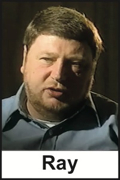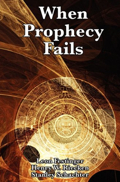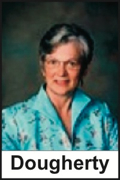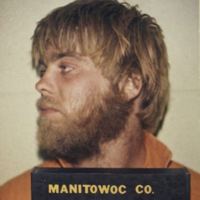Rascals case in brief
In the beginning, in 1989, more than 90 children at the Little Rascals Day Care Center in Edenton, North Carolina, accused a total of 20 adults with 429 instances of sexual abuse over a three-year period. It may have all begun with one parent’s complaint about punishment given her child.
Among the alleged perpetrators: the sheriff and mayor. But prosecutors would charge only Robin Byrum, Darlene Harris, Elizabeth “Betsy” Kelly, Robert “Bob” Kelly, Willard Scott Privott, Shelley Stone and Dawn Wilson – the Edenton 7.
Along with sodomy and beatings, allegations included a baby killed with a handgun, a child being hung upside down from a tree and being set on fire and countless other fantastic incidents involving spaceships, hot air balloons, pirate ships and trained sharks.
By the time prosecutors dropped the last charges in 1997, Little Rascals had become North Carolina’s longest and most costly criminal trial. Prosecutors kept defendants jailed in hopes at least one would turn against their supposed co-conspirators. Remarkably, none did. Another shameful record: Five defendants had to wait longer to face their accusers in court than anyone else in North Carolina history.
Between 1991 and 1997, Ofra Bikel produced three extraordinary episodes on the Little Rascals case for the PBS series “Frontline.” Although “Innocence Lost” did not deter prosecutors, it exposed their tactics and fostered nationwide skepticism and dismay.
With each passing year, the absurdity of the Little Rascals charges has become more obvious. But no admission of error has ever come from prosecutors, police, interviewers or parents. This site is devoted to the issues raised by this case.
On Facebook
Click for earlier Facebook posts archived on this site
Click to go to
Today’s random selection from the Little Rascals Day Care archives….
Click for earlier Facebook posts archived on this site
Click to go to
Today’s random selection from the Little Rascals Day Care archives….
That was Dennis T. Ray’s story, and he was sticking to it
 Aug. 14, 2013
Aug. 14, 2013
“FARMVILLE – A juror in the trial of Robert F. Kelly Jr. testified Wednesday that it was an ‘amazing coincidence’ that information from a magazine article appeared in his notes about jury deliberations.
“Dennis T. Ray insisted during a hearing on Kelly’s bid for a new trial that he did not use information from a Redbook article about child molestation to evaluate Kelly’s guilt. Ray denied that he compared Kelly to characteristics of a molester listed in the article.
“But defense attorney David Rudolf vigorously attacked Ray’s credibility by referring to notes Ray made during the deliberations. Rudolf cited numerous phrases from the magazine article, such as ‘vast amount of child pornography’ and ‘sex fiend’ which were identical to phrases in Ray’s notes.
“Rudolf, his voice rising, asked Ray whether it was just coincidence that so many phrases from the magazine appeared word-for-word in his notes. Ray replied that ‘it must be’ because jurors did not have the article in the jury room. ‘The only explanation you have for this is that it is an amazing coincidence?’ Rudolf asked. ‘Yes, sir,’ Ray said.
“In another sharp exchange, Rudolf questioned Ray’s contention that he did not describe the article in an interview with a producer for (“Innocence Lost”). Ray said he told her (only) that there were books in the jury room. Rudolf: ‘You are under oath, sir.’ Ray: ‘I do not remember saying that to her. No, sir.’ Rudolf: ‘Did you say it or not? You are under oath.’ Ray: ‘I do not believe that I did.’
“Rudolf then played video tapes of the program that showed Ray describing the article. Ray said after viewing the video that he did not remember it.”
– From “Kelly lawyer attacks juror’s credibility” in the News & Observer (Jan. 20, 1994)
Dennis T. Ray seems to have been quite a loose cannon in the jury room. In addition to the “amazing coincidence” of the Redbook article, Ray also (according to other jurors cited in Bob Kelly’s appellate brief) “made visits to Edenton despite instructions by the trial court not to.
Mr. Ray also claimed to have talked with an inmate at Eastern Correctional Institution. According to Mr. Ray, the inmate, a convicted child molester, claimed to know Bob Kelly, and to have personal knowledge of Mr. Kelly’s guilt. The jurors said that Mr. Ray also displayed some sort of object that he claimed to be a ‘magic key’ referred to by several children.”
Unpersuaded that any of this mischief might have contaminated the jury’s decision-making, Judge Marsh McLelland rejected Bob Kelly’s motion for a new trial.
The limits of ‘unequivocal and undeniable evidence’
 April 1, 2013
April 1, 2013
“Suppose an individual believes something with his whole heart; suppose further that he has a commitment to this belief, that he has taken irrevocable actions because of it; finally, suppose that he is presented with evidence, unequivocal and undeniable evidence, that his belief is wrong; what will happen?
“The individual will frequently emerge, not only unshaken, but even more convinced of the truth of his beliefs than ever before….”
– From “When Prophecy Fails” by Leon Festinger, Henry Riecken and Stanley Schachter (1956)
The three social psychologists studied the refusal of a cult of UFO believers to accept that their belief in an imminent apocalypse had been proven false. Seth Mnookin usefully dusts off this case in “The Panic Virus: A True Story of Medicine, Science and Fear,” his 2011 expose of the groundless claim that childhood vaccination causes autism.
Before the day-care ritual-abuse mania ran its course, its theorists and trophy hunters clung ever more tightly to a belief system with no rational means of support. Long after the phoniness of the Little Rascals prosecution had become clear to the world, Nancy Lamb managed to conjure up an unrelated abuse charge against Bob Kelly. And even today…
‘Conditions that would lead to a retraction’? Sorry, no
 Nov. 19, 2012
Nov. 19, 2012
Crucial to the moral panic was a wave of ill-conceived academic and professional literature.
I asked Molly C. Dougherty, editor of Nursing Research, whether her journal had ever published a retraction of “Parental Stress Response to Sexual Abuse and Ritualistic Abuse of Children in Day-Care Centers” (January/February 1990). As is obvious in the title, Susan J. Kelley’s article embraces and promotes the existence of ritual abuse in day cares.
Dr. Dougherty told me that no retraction had appeared in the past or would appear in the future: “The authors of the article were careful to provide a thorough sample description without including information that linked participants to any specific location or case. Conditions that would lead to a retraction are not present.”
This is from my reply to her:
“Of course you are correct that Susan J. Kelley didn’t say which day-care cases were the basis for ‘Parental Stress Response to Sexual Abuse and Ritualistic Abuse of Children in Day-Care Centers.’ (Fells Acres seems a likely candidate, since it was Kelley’s own improper interviewing of child-witnesses that led to the overturning of convictions in that case.)
“But the problem here is not specific to Fells Acres, McMartin or Little Rascals. The entire article was founded on a false belief: that satanic ritual abuse occurred at even one day care. No such ‘multiple victim, multiple offender’ allegations were ever validated. In case after bizarre case, charges were eventually dropped and guilty verdicts overturned.
“The decade-long moral panic finally collapsed in the early 1990s. Today you will not find a single respected academic or professional willing to give credence to the claims of the ritual abuse era.
“By contrast, this excerpt from Kelley’s abstract demonstrated her unquestioning advocacy:
“ ‘The purpose of this study was to examine the stress responses of parents to the sexual and ritualistic abuse of their children in day-care centers…. Parents of sexually abused children reported significantly more psychological distress than parents of nonabused children, with parents of ritually abused children displaying the most severe psychological distress.’
“Plainly, this article was guilty of what you lament in your (unrelated) September 11 blog post:
“failure to address legitimate alternative views and evidence.” And what better example of the “pseudo-science in the guise of science” criticized by Eileen Gambrill?
“I will leave you with a final question: Does Nursing Research really want to leave this article as its last word on the subject?”
So far, Dr. Dougherty’s answer seems to be yes.
Obama can’t pardon Chandler – but McCrory could
Jan. 6, 2016
“Many fans of (the hit Netflix documentary) Making a Murderer, which sheds light on questionable conduct by prosecutors and police involved in (Steven) Avery’s conviction, view the 53-year-old’s imprisonment as a miscarriage of justice and petitioned President Obama to pardon Avery. The online petitions have garnered more than 200,000 signatures.
“There’s just one problem: Avery is a state prisoner convicted under state law. The president only has the constitutional power to pardon or commute sentences in the federal system.
“Fans of Making a Murderer who believe Avery deserves clemency should consider signing this petition addressed to Wisconsin Gov. Scott Walker, which has so far been signed by just 1,033 people….”
– From “Hey, Making a Murderer Fans: Obama Can’t Pardon Steven Avery” by Leon Neyfakh at Slate (Jan. 4)
Junior Chandler’s application for gubernatorial clemency was rejected in 2014 and isn’t eligible for reconsideration until March 25, 2017.
But those who believe almost 30 years in prison is adequate punishment for a nonexistent crime may express their opinion by writing
Executive Clemency Office
4294 Mail Service Center
Raleigh NC 27699-4294
Meanwhile, the Duke Wrongful Convictions Clinic continues to investigate Chandler’s case.
![]()












0 CommentsComment on Facebook